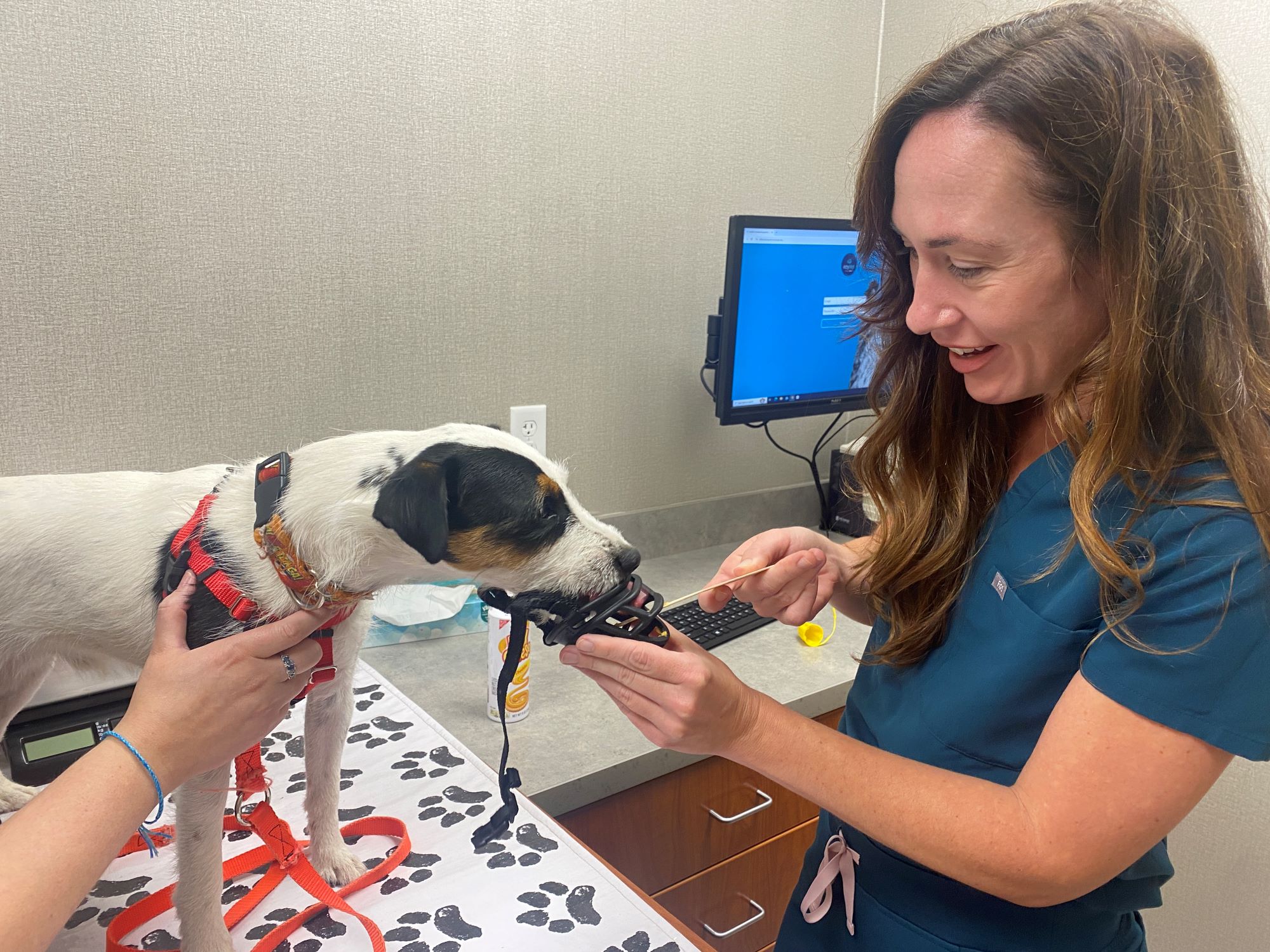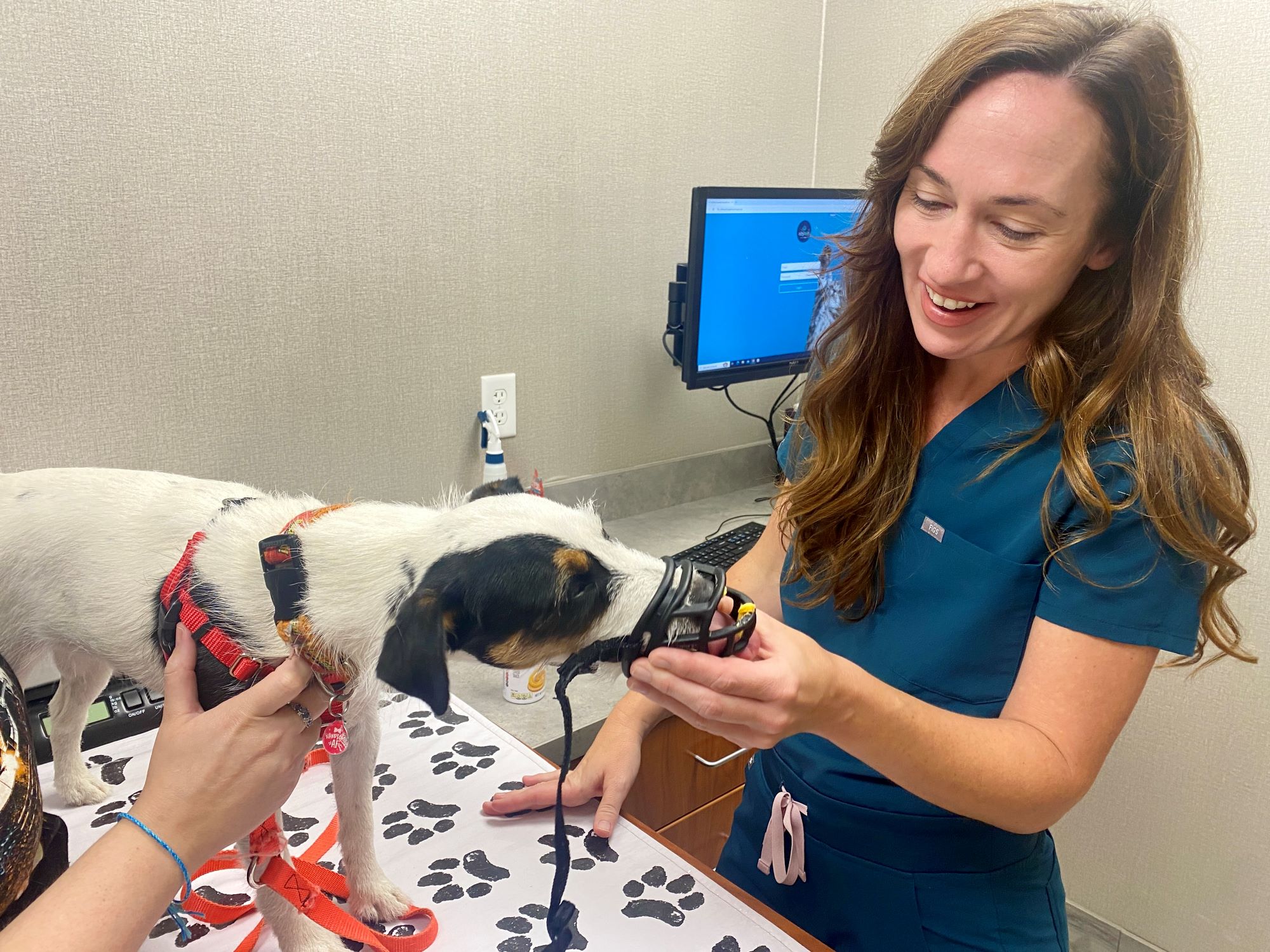
Understanding and Managing Your Dog's Anxiety
Cover Photo: Dr. Isard provides pointers on starting muzzle training for Jack Russell Terrier Sheldon.
Veterinary visits can be a source of significant stress for many dogs. Dr. Dana Isard, a veterinarian here at Cascade Hospital for Animals, sheds light on this common issue and offers valuable insights on how to make these necessary visits less anxiety-inducing for our canine friends.
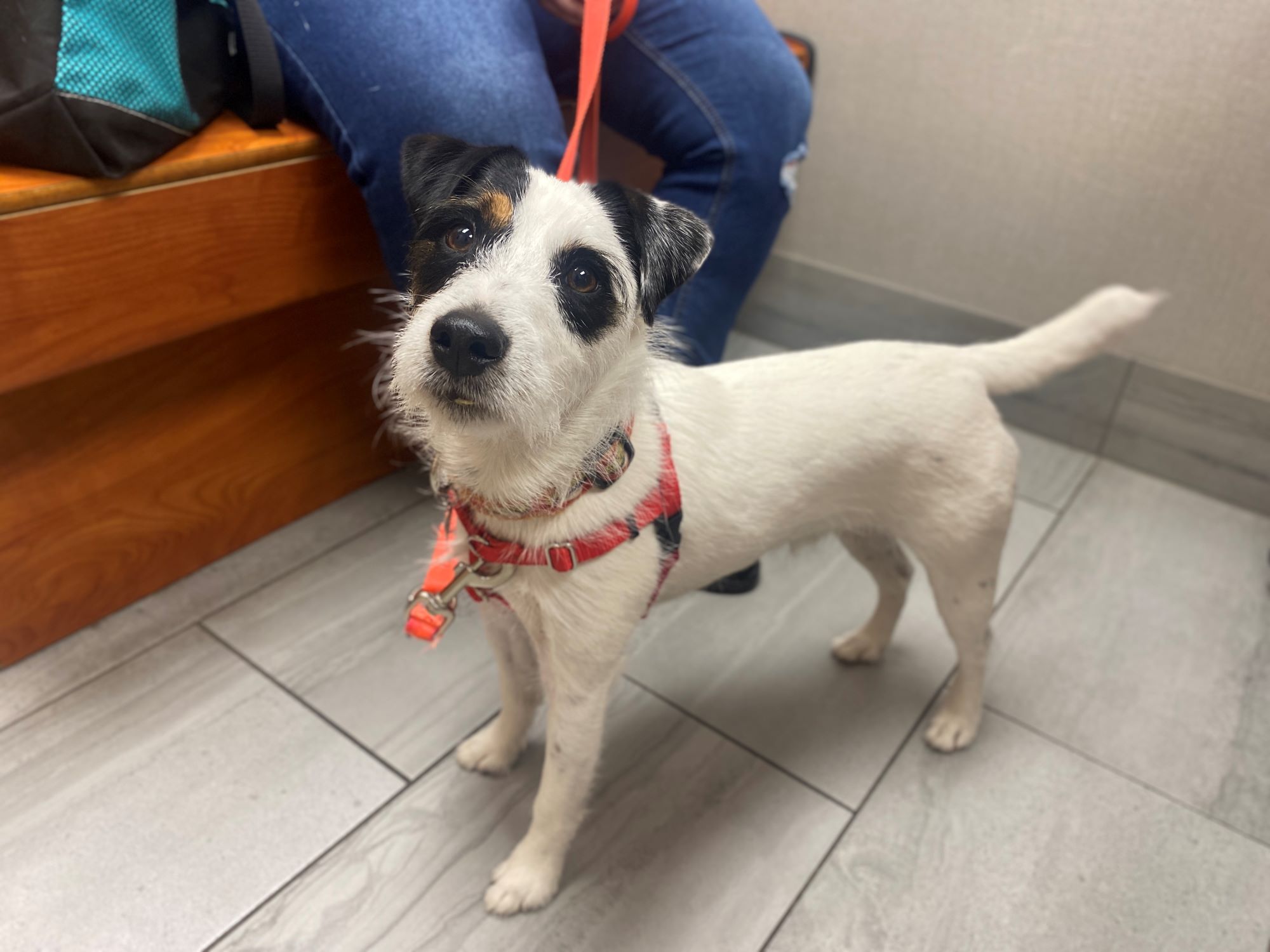 If you've ever noticed your dog becoming anxious the moment you pull into the veterinary clinic parking lot, you're not alone. Dr. Isard points out, "In fact, your dog is in the majority as one study reported that 52.9% percent of dogs experience veterinary-related stress before they even enter the clinic waiting room." This statistic highlights just how widespread this issue is among our canine companions.
If you've ever noticed your dog becoming anxious the moment you pull into the veterinary clinic parking lot, you're not alone. Dr. Isard points out, "In fact, your dog is in the majority as one study reported that 52.9% percent of dogs experience veterinary-related stress before they even enter the clinic waiting room." This statistic highlights just how widespread this issue is among our canine companions.
Interestingly, it's not just our pets who feel the strain. Dr. Isard adds, "Another study found that 26% of guardians become stressed by just the idea of taking their pet to the vet." This shared anxiety can create a cycle that exacerbates the problem, making it crucial for both pets and owners to find ways to manage these feelings.
Understanding Your Dog's Stress Signals
Recognizing the signs of anxiety in your dog is crucial. Dr. Isard emphasizes the importance of understanding your dog's body language to identify stressful behaviors.
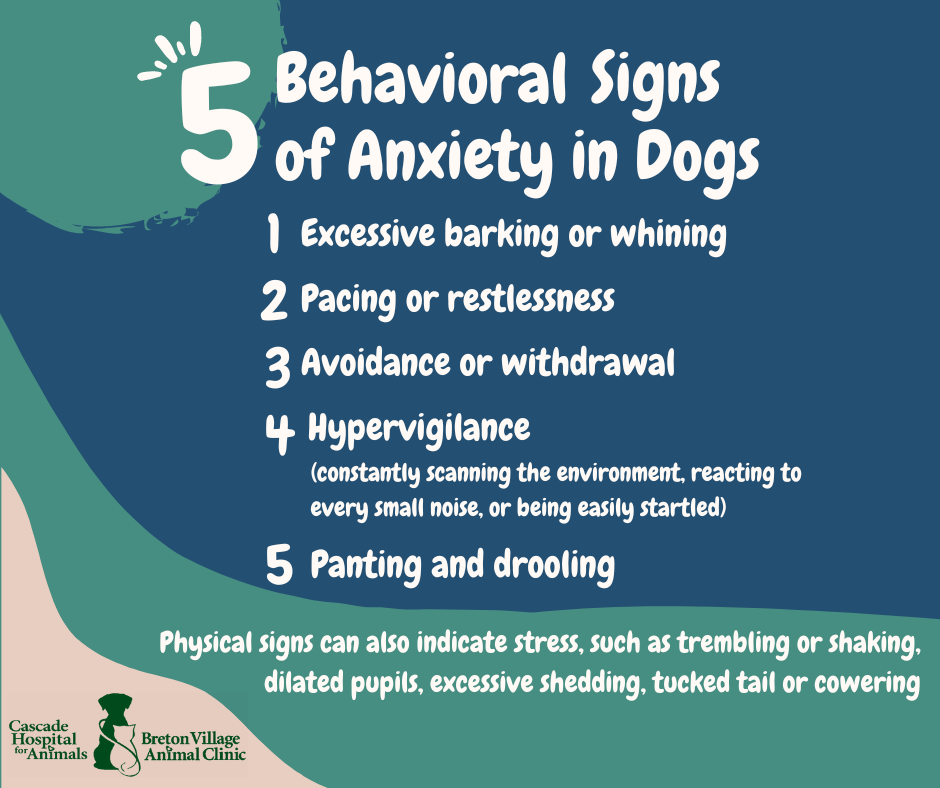
By being attuned to these signs, pet owners can better understand their dog's emotional state and take appropriate action to alleviate their stress.
Strategies to Reduce Veterinary Anxiety
Dr. Isard offers several strategies to help make veterinary visits less stressful:
- Cooperative Care Training: "One of the best ways to help your pet feel more comfortable for vet visits is to prepare them for veterinary care early with cooperative care training," Dr. Isard advises. This approach involves training your dog to be a willing participant in their healthcare experiences. It can include exercises like teaching your dog to accept handling of their paws, ears, and mouth, which are often examined during vet visits.
- Preparation is Key: Dr. Isard recommends keeping your pet's routine as normal as possible before the appointment. "Take a long walk before the appointment to burn off some energy," she suggests. This can help reduce pent-up anxiety and make your dog more relaxed during the visit.
- Create a Calm Environment: "Avoid bringing small children to appointments if possible so your pet can have your undivided attention," Dr. Isard advises. This can help minimize distractions and allow you to focus on keeping your pet calm and comfortable.
- Advocate for Your Pet: "Most importantly, advocate for your pet!" Dr. Isard emphasizes. "If your pet hates their ears being touched, let us know. If they love cheese and belly rubs, we would love to hear from you!" This information can help veterinary staff tailor their approach to your dog's specific needs and preferences.
Chronic anxiety can have serious health implications for pets. Dr. Isard explains, "The emotional well-being of animals is a health issue. During times of high stress, we have increased levels of cortisol which is a steroid." Long-term exposure to stress can lead to:
- Decreased ability to cope with additional or novel stressors
- Weight loss
- Immune dysfunction
- Reproductive failure
These potential consequences underscore the importance of addressing anxiety not just for your pet's comfort, but for their overall health and well-being.
Addressing Anxiety: Medications and Training
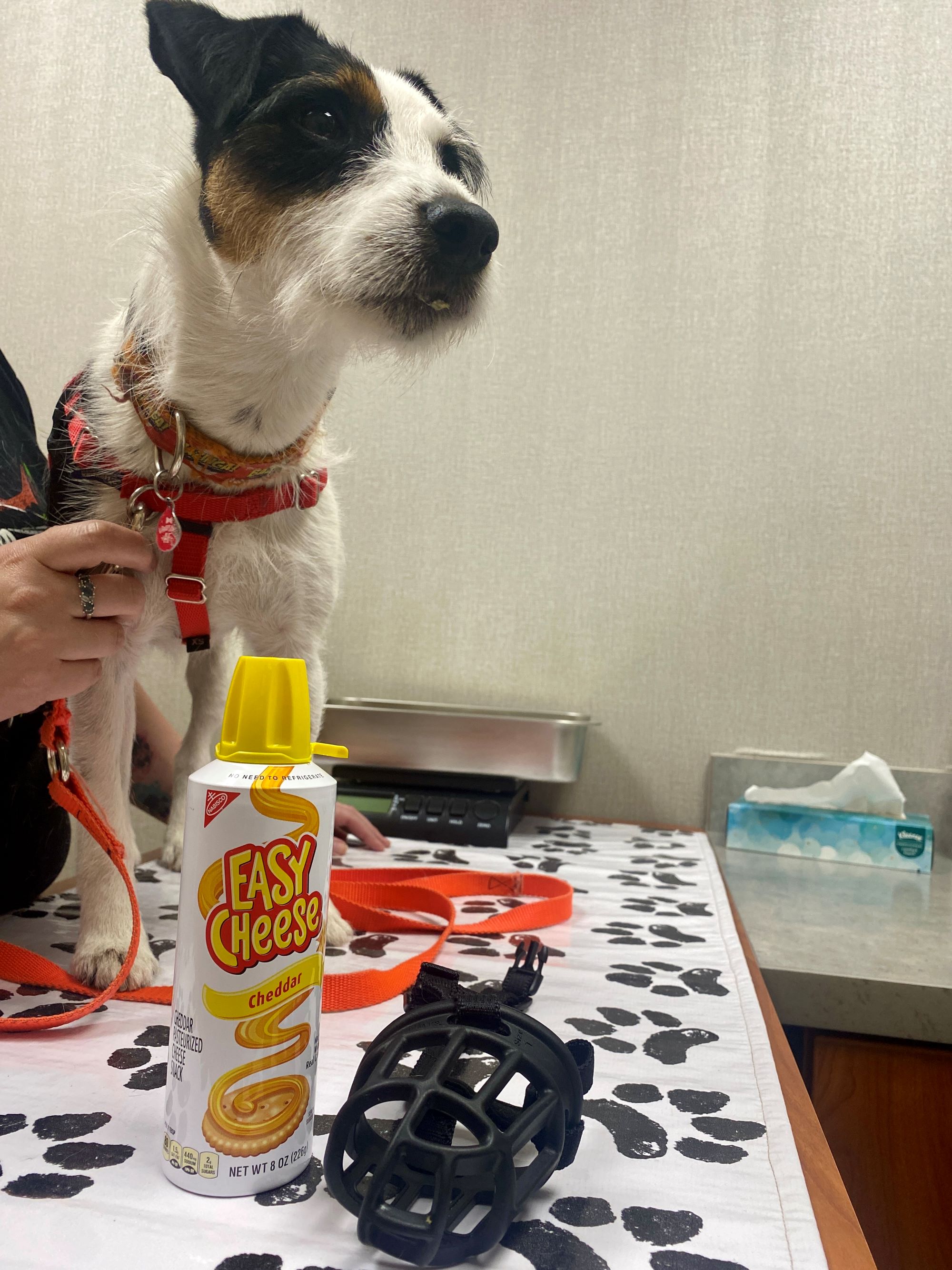
Dr. Isard notes, "One thing we know is that negative experiences when going to the vet can increase the likelihood that a dog will exhibit signs of fear at future veterinary appointments." This highlights the importance of making each visit as positive as possible to prevent a cycle of increasing anxiety.
For particularly anxious dogs, muzzle training can be a valuable tool. Dr. Isard emphasizes, "Proper muzzle training can help reduce stress for both the dog and the veterinary staff during examinations and procedures." She recommends introducing the muzzle gradually at home, associating it with positive experiences and treats. This way, the dog learns to view the muzzle as a normal, non-threatening part of their routine rather than a source of additional stress during vet visits.
Regarding medications, Dr. Isard explains, "We have many medications that can help reduce your dog's anxiety in high stress situations. These medications should be used to address the fear response, not just cause sedation." She emphasizes that ideally, a combination of medication and training will yield the best results.
It's important to note that the use of medications should always be discussed with and prescribed by a veterinarian. Each dog's needs are unique, and what works for one may not be appropriate for another.
While veterinary visits can be stressful for many dogs, understanding the signs of anxiety and implementing strategies to reduce stress can significantly improve the experience. By working closely with your veterinarian, using a combination of training techniques, and considering medication when appropriate, you can help ensure that your dog's health check-ups are as stress-free as possible. Remember, a calm and comfortable dog is more likely to receive better care and have more positive associations with veterinary visits in the future.
Located in the heart of West Michigan, serving Ada, Cascade, Forest Hills, and the greater Grand Rapids area, Cascade Hospital for Animals and Breton Village Animal Clinic are trusted havens for vet care. Reach out today to schedule a comprehensive physical examination for your pet.


